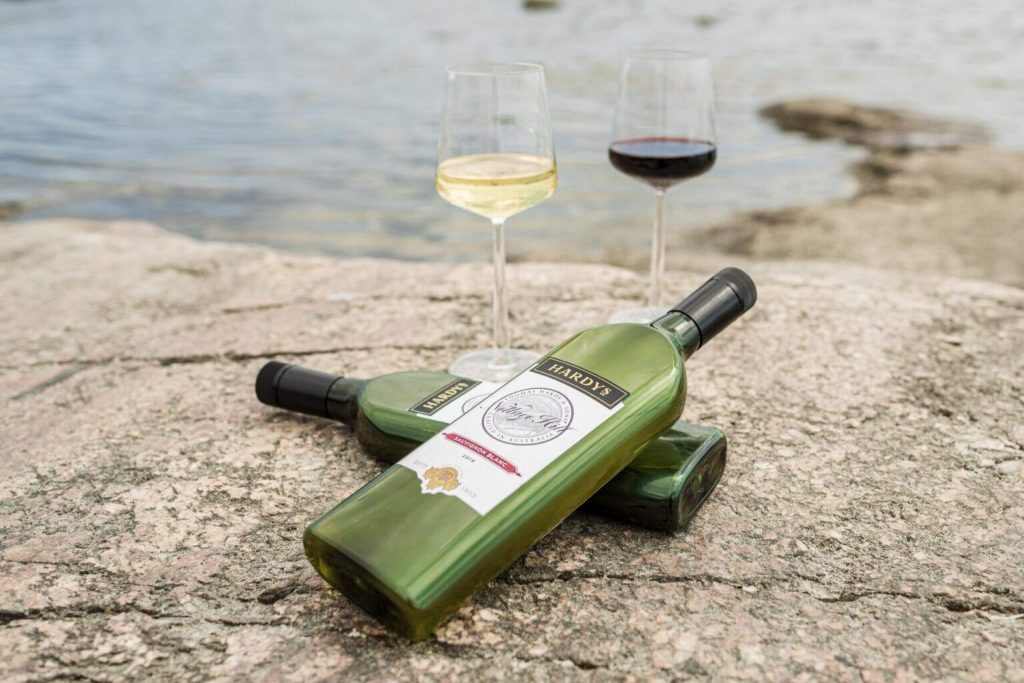
Let’s talk about wine!
A lot of the time when talking about sustainability, plastic is demonised. But there are some cases where good types of plastic are more eco-friendly than materials such as glass – wine is a great example.
Issues with Glass
Glass bottles are the single largest contributor – between 50% and 68% [1, 2, 3] – to a wine bottle’s carbon footprint. This is due to a few reasons:
- Glass production requires the use of furnaces which reach temperatures of up to 1600°C [4]
- Glass is much heavier than other materials such as plastic, so more fuel is required during transportation
- Glass bottles, as they are round, do not optimise all available space in a crate
Alternative packaging solutions
There are some companies – such as Packamama – working to bring down wine’s environmental footprint. Packamama are a multi-award-winning company providing innovative, climate-friendly packaging for the drinks industry. I was lucky enough to speak with Alex Adda, the Sustainability Executive at Packamama. He gave me a rundown of the benefits of Packamama’s eco-flat wine bottle (pictured). Below are the highlights [5]:
- Made from 100% recycled PET and fully, easily, and widely recyclable
- No virgin plastic is used in making their bottles, and by using recycled PET, Packamama are taking pre-existing material and putting it back to good use. Additionally, Packamama have made it as easy as possible for consumers to correctly recycle their bottles; once empty, the whole bottle can be popped in the recycling bin without the consumer having to remove the labels or cap collar, and 100% of local councils in the UK accept PET in kerbside recycling.
- 87% lighter (at 63g) than an average round glass bottle (at 500g)
- Emissions are reduced as less energy is needed to transport lighter loads.
- 40% more space-efficient, and you can fit up to 91% more bottles on a UK-sized pallet
- This makes transporting the bottles more efficient, both as a wholesaler and a consumer
Independent LCAs conducted on Packamama’s bottles from third parties show an approximate 50% carbon reduction. As the name suggests, LCAs assesses the full life cycle of a product and are widely used in the sustainability sector [6], measuring the environmental impact of each stage of a product’s life cycle, from the extraction or sourcing of materials needed to make the product, through the transport and use of the product, to the end-of-life management of it.
While the benefits of Packamama’s eco-flat wine bottles over traditional glass ones are well established, Adda says that there is a general public misunderstanding of the difference between “good” and “bad” plastics, resulting in the majority of plastic packaging to be perceived negatively. He stresses the importance of recognising that the term ‘Plastic’ is unhelpful because it actually describes multiple polymer types, and each of these materials have very different environmental impacts. For example, while 100% of local councils collect PET in kerbside recycling [7], Styrofoam, a brand of a type of polystyrene, is pretty much impossible to recycle, and even harder once it’s been contaminated by food [8]. Packamama believes that unlike other plastics, PET is a wonder material due to its low-carbon footprint, energy efficiency and circularity with pre – and – post use recyclability.
The future of recycling
Despite some plastic products being clearly labelled as recyclable, not all plastic packaging actually ends up being recycled. One major reason is the inadequate government investment to improve recycling infrastructure efficiency and services [9]. Additionally, there is a need to address consumer behaviour as public confusion on what types of plastics can be recycled, and personal inconvenience to actually recycle a product due to a lack of available recycling bins on streets for instance, are two other key factors that are driving plastic pollution. Nonetheless, PET is a wonder material by being the most widely recycled material in the world [10], and by being amongst the polymers with the highest recycling rates in the UK too. This was evident in 2017, when 74% of beverage containers were recycled and recovered (i.e. not sent to landfill) [11]. A deposit return scheme (DRS), which Packamama are big supporters of, would help increase this recycling rate to over 90%. A DRS is an incredibly effective way of encouraging recycling and has had success in other countries for many years [11, 12].
Furthermore, new methods of recycling are emerging, soon on a commercial scale, most notably depolymerisation using enzyme-based methods to break down the material to its building blocks. This would enable infinite recycling of PET, something which Packamama are hoping to engage with once the technology is commercially available, to help create endlessly recyclable bottles. As always, finding the most sustainable solution is a complex, multi-faceted process with no clear ‘correct’ answer, but companies like Packamama are leading the way with their innovative solutions and dedication to following through on their sustainability promises. If you’re interested in seeing these bottles for yourself, check out the brands that use them here or grab a bottle of Banrock Sustainable wine from a nearby Co-op or Tesco.